15 sustainably-driven seaside stays to celebrate World Oceans Day
Truly eco-friendly beach holidays are no longer about treading lightly, or just leaving footprints in the sand. If you really want to make a difference when you travel – especially when it comes to coastal environments – choosing actively sustainable hotels which make a conscious, continuous effort to balance luxury with longevity is more than a drop-in-the-ocean decision. From reef restoration to plant-your-own coral projects, these Considerate Collection resorts are going beneath the surface of sustainability to protect the planet’s most precious natural resource, while encouraging guests to make meaningful waves of change throughout their stay (and beyond).
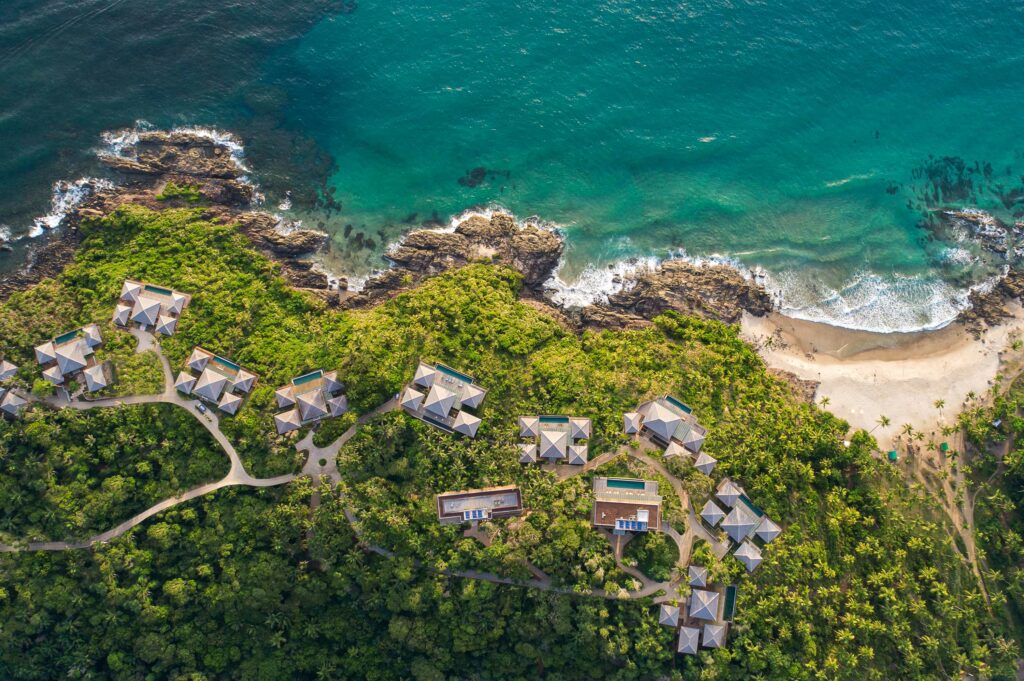
Barracuda Hotel & Villas, Itacaré – Brazil
Tucked away in the balmy Brazilian state of Bahia along the ‘Cocoa Coast’, Barracuda Hotel & Villas is a secluded all-suite Swedish-Bahian, bohemian blend of a retreat. In this protected tropical paradise, you’ll sip from tabocas straws, a thin bamboo made by the local Taboquinhas community, and bathe in water heated by solar panels and cleaned by Barracuda’s water purification system. In partnership with Itacaré’s Surfing Association (ASI), the resort supports ‘Surfing for the Future’, a locally-run project which aims to achieve social inclusion of under-privileged children through surf lessons, environmental education and psychological support.
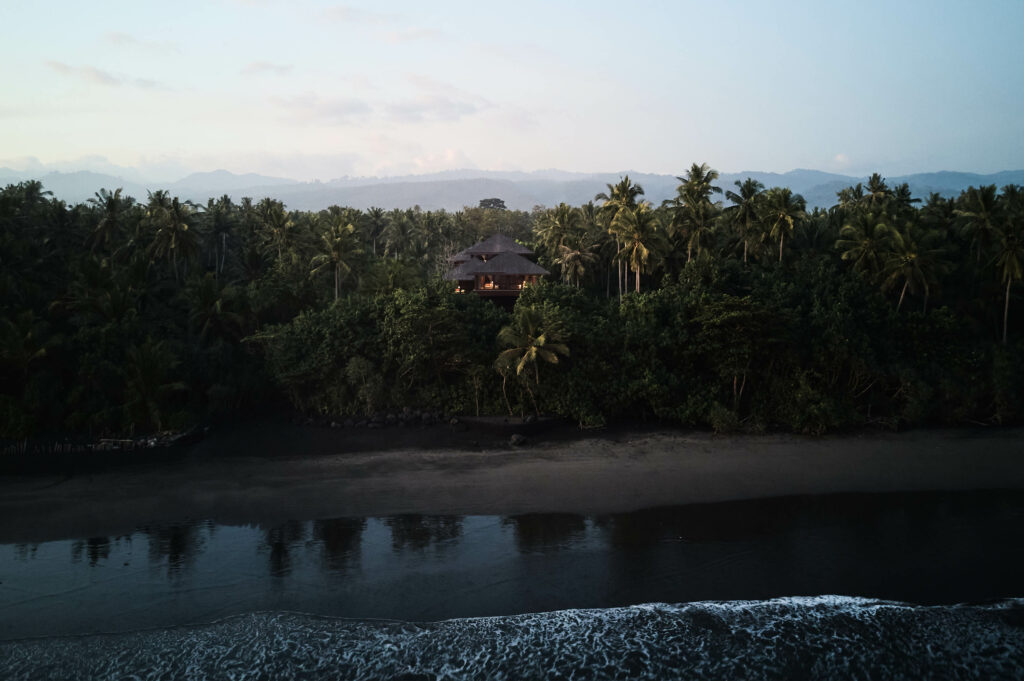
LOST LINDENBERG, Bali – Indonesia
On a deserted black lava sand beach, LOST LINDENBERG feels a world away from Bali’s overtouristed trails. Sympathetically built, solar-powered treehouses are tucked between frangipani fronds in a hidden jungle clearing. This GreenSign-certified guest collective is making waves in the local surfing community, by teaming up with professional surfer Muklis Anwar to found The LOST Bunch, an educational programme supporting young surfers from around the area with surfing classes and lessons in English and hospitality. Through surf competitions and courses, the project is also accessible to the guests who are looking to catch a few waves in good company.
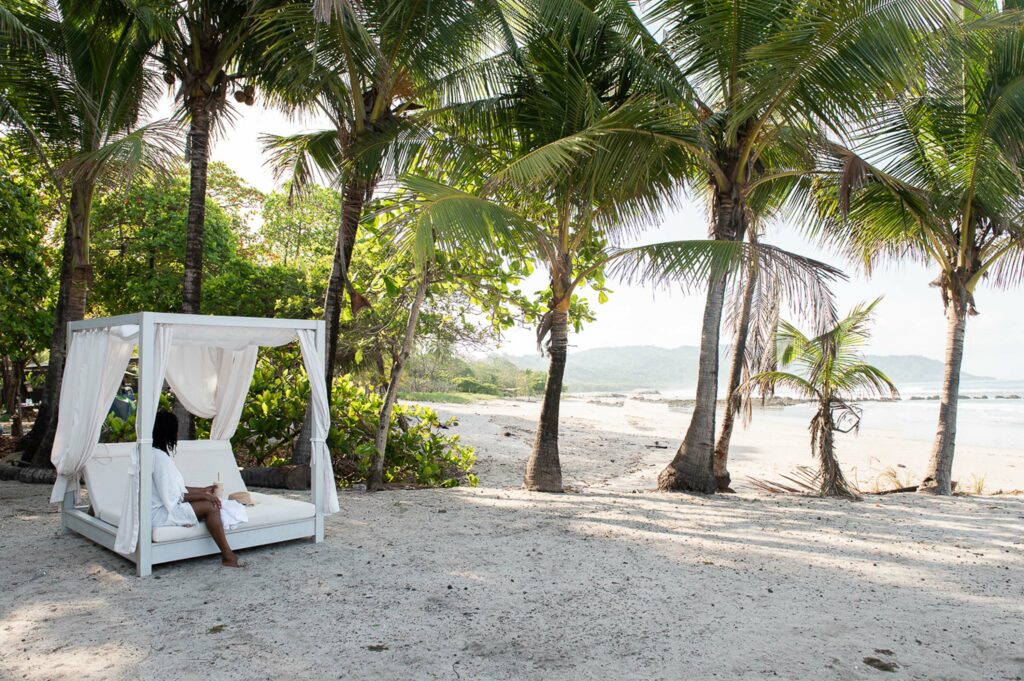
Hotel Nantipa, Santa Teresa – Costa Rica
Every element at Hotel Nantipa is inspired by the ocean and sky – right down to its name, which means ‘blue’ in the native Nicoya tribal language. From dawn to dusk you’ll have the sand between your toes and the sound of crashing waves in your ears. Solar energy is used to heat the water for all rooms, while a state-of-the-art water treatment plant helps lower the hotel’s overall water consumption. Get involved with the daily beach clean-up programme and you’ll be rewarded with a refreshing smoothie from the Nantipa bar, in exchange for picking up micro-plastic residue in aluminium buckets.
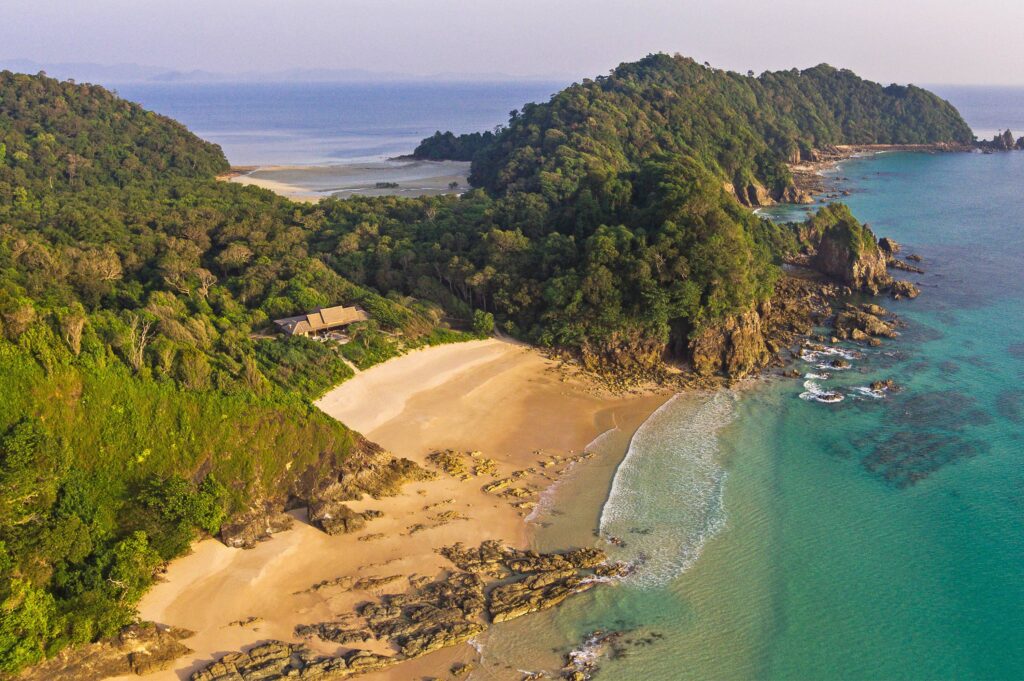
Wa Ale Resort, Myeik Archipelago – Myanmar
Wrapped in the leafy folds of virgin jungle on a remote 5,000 acre island previously untouched by tourists, Wa Ale was born out of a fierce desire to protect its pristine Lampi Marine National Park surroundings. The solar-powered resort pledges to annually donate 20% of net profits and 2% of room revenues to the Lampi Foundation, which was established by Wa Ale to help fund social welfare and conservation projects on the Myeik Archipelago. These nature-focused initiatives include an ongoing sea turtling nesting programme (the Lampi Foundation opened the park’s first sea turtle hatchery), and installing boat moorings to prevent coral destruction.
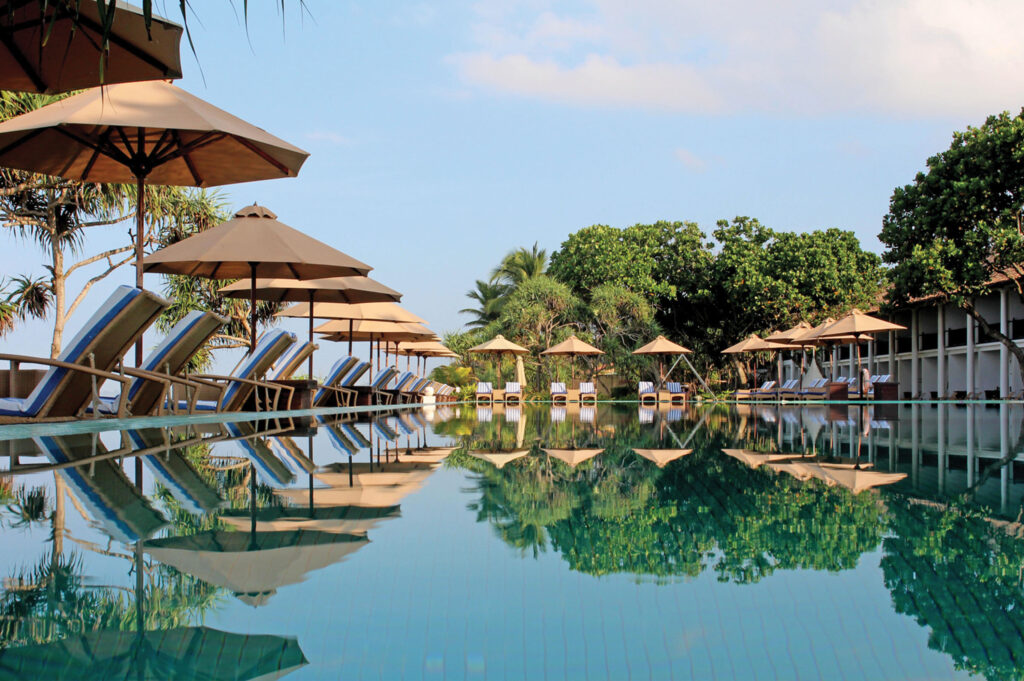
The Fortress Resort & Spa, Galle – Sri Lanka
With every room offering an awe-inspiring view of the Indian Ocean, The Fortress Resort & Spa puts coastline protection front and centre of their agenda. The resort is certified by Green Globe for its exceptional sustainable standards, including its efforts in keeping its coastal environment pristine. The hotel runs its own Relax and Release Turtle Conservation Project to help protect the area’s endangered native sea turtles. Every year from October to April guests can take part in releasing the tiny hatchlings into the ocean – while the resort’s dedicated turtle ranger, Laksiri Perera, patrols the beaches at night to ensure that mother turtles are able to nest in peace and that their hatchlings reach the sea safely.
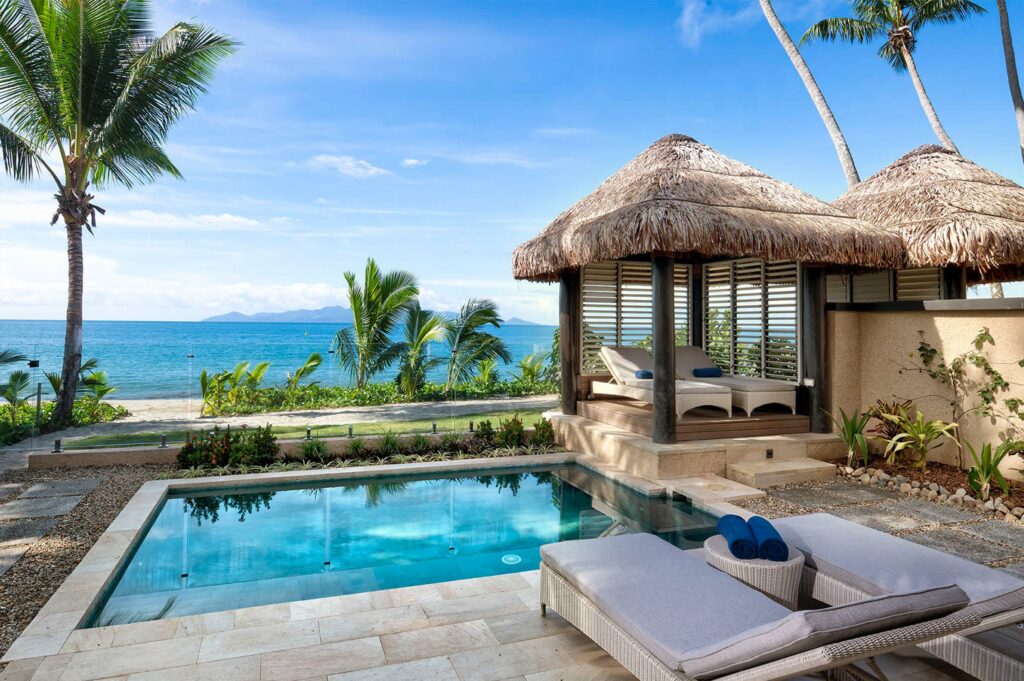
Nanuku Resort, Pacific Harbour – Fiji
Overlooking the shimmering Beqa Lagoon in a far-flung corner of the Pacific Ocean, Nanuku Resort goes to great lengths to keep its beaches clean and surrounding waters pristine. To date, over 10,000 mangrove trees have been planted in a neighbouring village to help reduce coastal erosion from storm surges and cyclones. Lend a hand in the planting process, while learning about mangroves’ essential role as a nesting and breeding habitat for an incredible array of fish and shellfish. Join the resident marine scientist to plant and tag your own coral garden on Nanuku’s house reef, tracking its progress on return trips year after year. The resort’s private beach is used as a turtle nesting site, while Nanuku staff work closely with the local university to collect DNA samples for turtle conservation research.
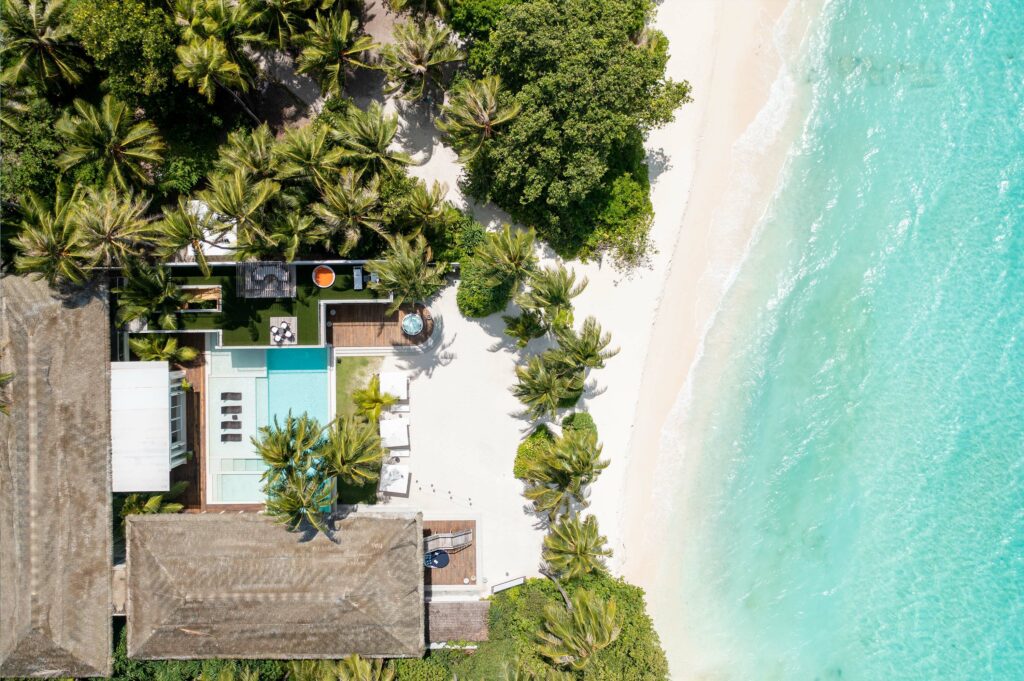
Amilla Maldives Resort and Residences, Baa Atoll – Maldives
Located near the Manta Ray-filled waters of Hanifaru Bay, Amilla Maldives Resort collects invaluable data for the Maldivian Manta Ray Project (MMRP) research into the country’s Manta population, its movements, and how tourism affects their environment. The Amilla team is also working hand-in-hand with Parley for the Oceans on fighting plastic ocean waste by using refillable ceramic containers for bathroom amenities alongside eliminating plastic straws. You can purchase from a range of rash shirts, caps, and clothing made from 100% recycled plastic bottles. The ‘Ocean-R’ collection uses recycled ocean waste to produce bespoke clothing designed especially for the resort. Each shipment contains items made from 3,752 pieces of plastic bottles retrieved from the world’s oceans – just one more step towards helping the oceans to become plastic-free.
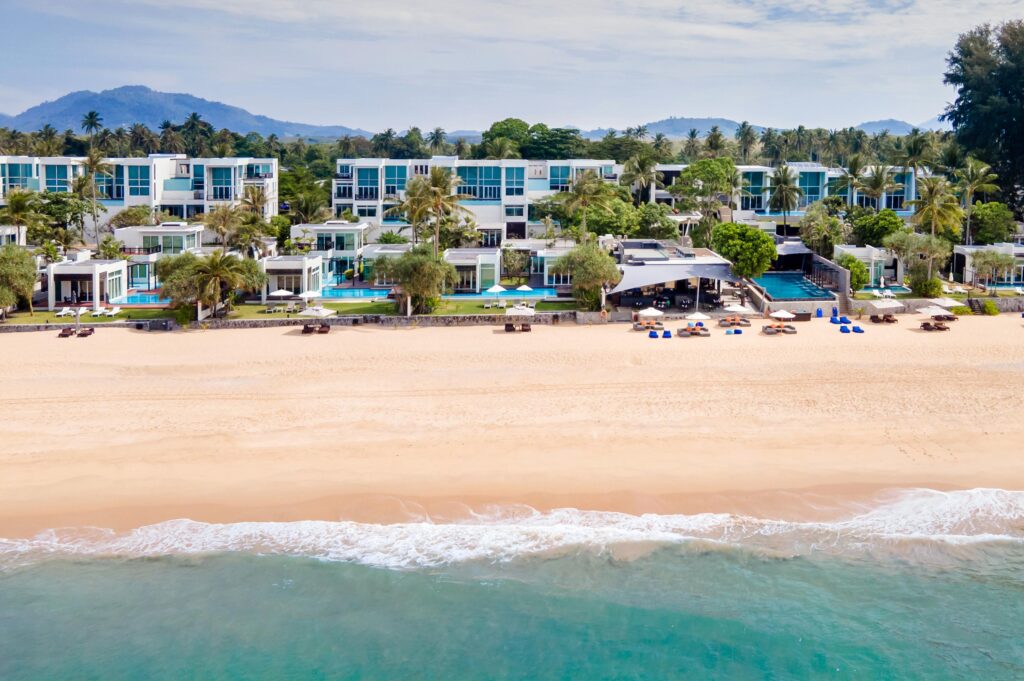
Aleenta Resort & Spa Phuket, Phuket – Thailand
Waves gently roll onto the sandy shore and coconut palms sway in the tropical breeze – Aleenta Resort & Spa Phuket is a picture-perfect paradise which keeps its biosphere reserve setting front of mind. To minimise the impact of water usage on its neighbouring communities, every Aleenta villa has its own water treatment system which utilises microorganisms and enzymes rather than harsh chemicals to treat the water. The resort also invests in local marine conservation and regeneration through the charitable foundation, Pure Blue, by funding the Fishery Research Department’s efforts to repopulate reef fish and soft corals, reef growth acceleration projects, and sponsoring two turtle sanctuaries to rehabilitate injured turtles, plus protect nests and hatchlings of critically endangered species.
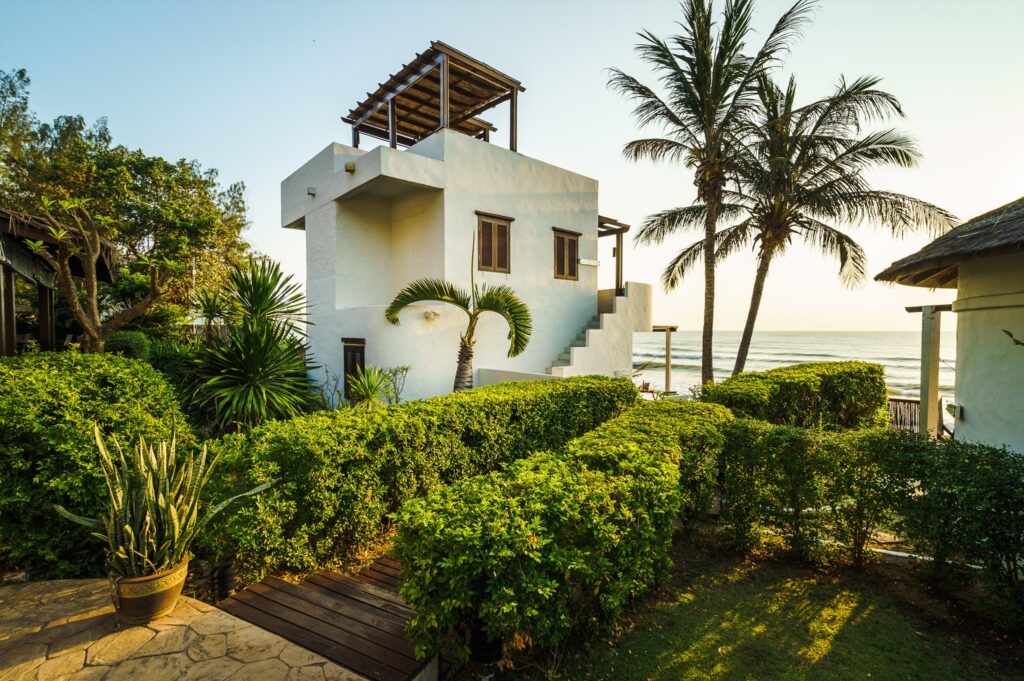
Aleenta Resort & Spa Hua Hin, Hua Hin – Thailand
Protecting the precious Paknampran Bay and beyond is a resort-wide effort at Aleenta Resort & Spa Hua Hin. By switching to reusable glass bottles and refillable ceramic amenities, as well as following a rigorous ‘reduce, reuse, recycle’ policy, the resort has saved 800,000 plastic drinking and bathroom bottles to date. For unforgettable day-trips with a difference, Aleenta guests are encouraged to visit Khao Sam Roi Yot, Thailand’s first marine national park, and assist the rangers in reforesting the mangrove ecosystem. Aleenta Hua Hin uses the same water treatment system as its Phuket sister property throughout its villas, and also supports the charitable work of Pure Blue.
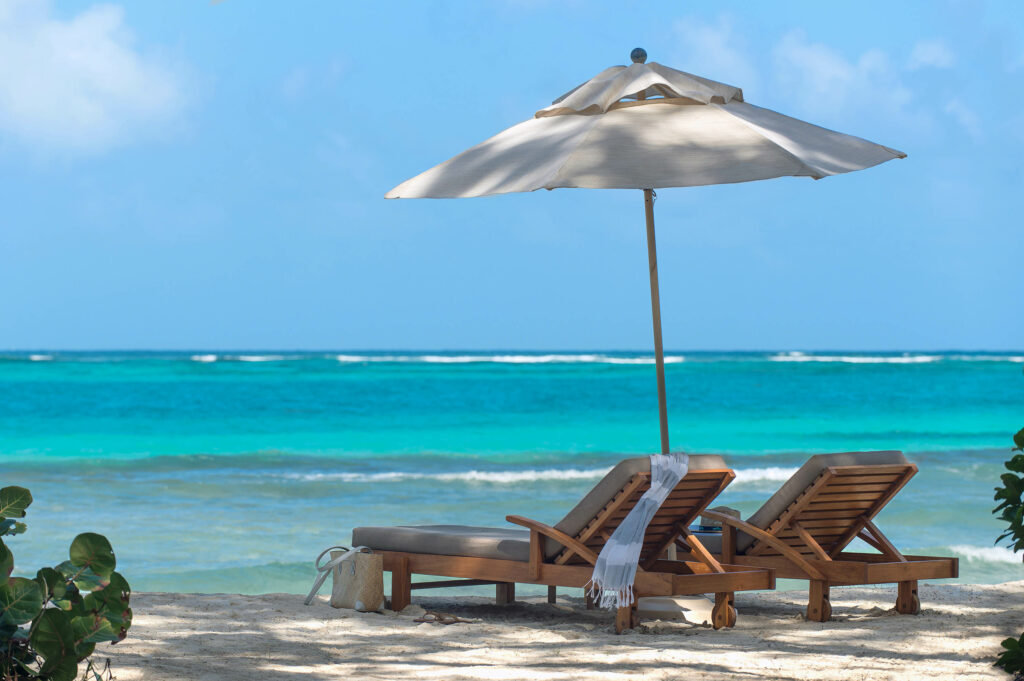
Petit St. Vincent, Saint Vincent & the Grenadines – Caribbean
Balancing barefoot luxury with sustainable living, Petit St. Vincent goes out of its way to be ecologically conscious and conserve the natural beauty of the 115-acre island. Reef regeneration is a crucial step towards creating a designated marine protected area around Petit St. Vincent. As part of the private island’s coral restoration project, in partnership with the Philip Stephenson Foundation and CLEAR Caribbean, a coral nursery has been constructed using fragments of Elkhorn coral collected from around the island. Once grown, the outcrops of juvenile coral will be used to repopulate nearby reefs on the Atlantic side of the island. Home to the Jean-Michel Cousteau Dive Centre, the PADI team are passionate about protecting the planet’s oceans, and enabling guests to safely and respectfully discover the surrounding waters.
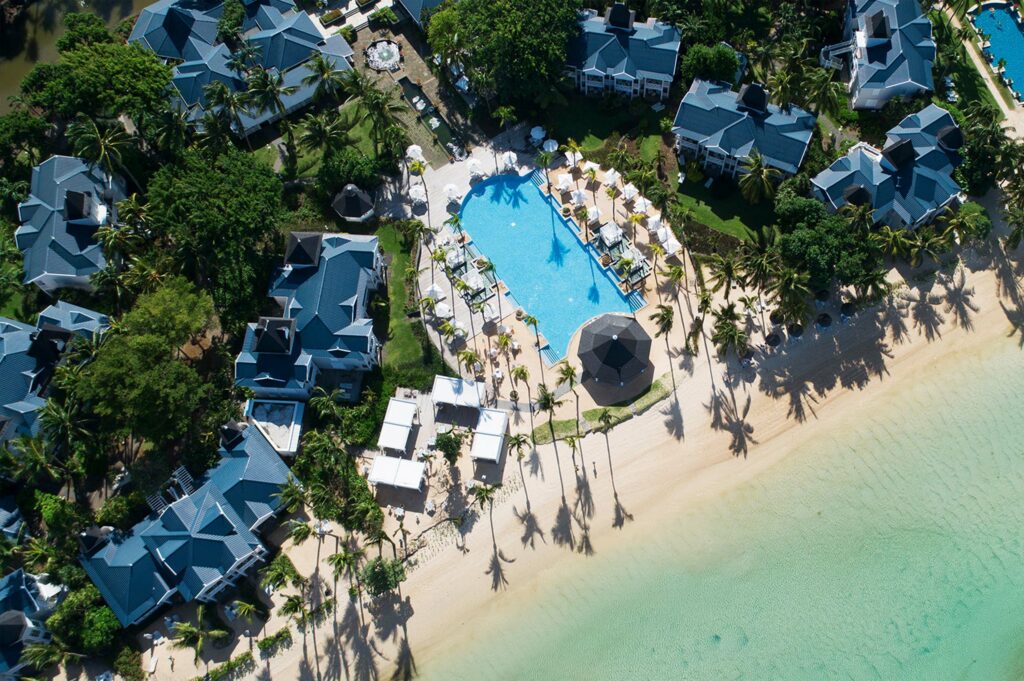
Heritage Le Telfair Golf & Wellness Resort, Bel Ombre – Mauritius
Set on the wild south coast of Mauritius in a protected nature reserve, Heritage Le Telfair takes great care of its pristine beach and the beautifully renovated villas which are sensitively scattered throughout tropical gardens. The resort has partnered with Reef Conservation, a local NGO, on marine ecosystem conservation projects such as the installation of artificial reefs with coral fragments, and with Mauritius Wildlife Foundation to preserve native species present in the forests of Heritage Nature Reserve. Heritage Le Telfair also runs a reforestation programme in partnership with Rogers, its parent company, to restore the Jacotet river banks which in turn promotes a healthier marine ecosystem in the Bel Ombre lagoon.
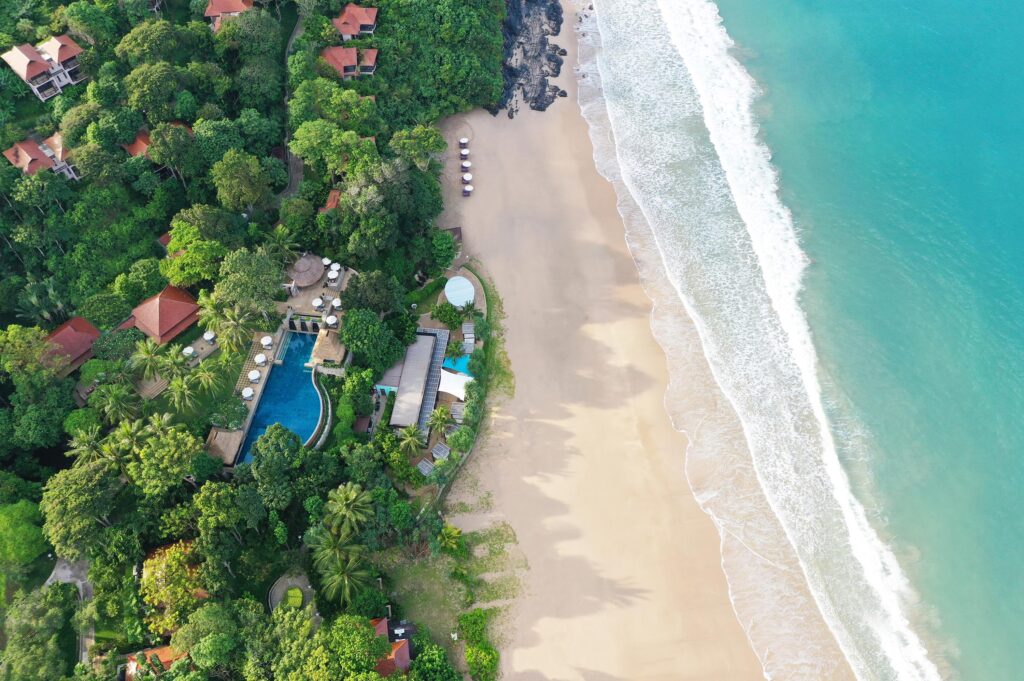
Pimalai Resort & Spa, Koh Lanta – Thailand
A secluded island paradise set against a backdrop of lush tropical forest, Pimalai Resort & Spa sits alongside a vast stretch of sandy beach facing the Andaman Sea. Paddle in the cooling water along the bright white sandy shore with a gentle sea breeze in your hair, before joining one of the resort’s daily dive tours to witness the vast array of marine life from sea horses and ghost pipefish to huge manta rays from a respectful distance. Alongside running an ongoing coral propagation programme, Pimalai Resort works closely with the Thai Fishery Department, and has held the annual clownfish release at Koh Haa for 12 years, a neighbouring archipelago which hopes to soon be recognised as a fish sanctuary.
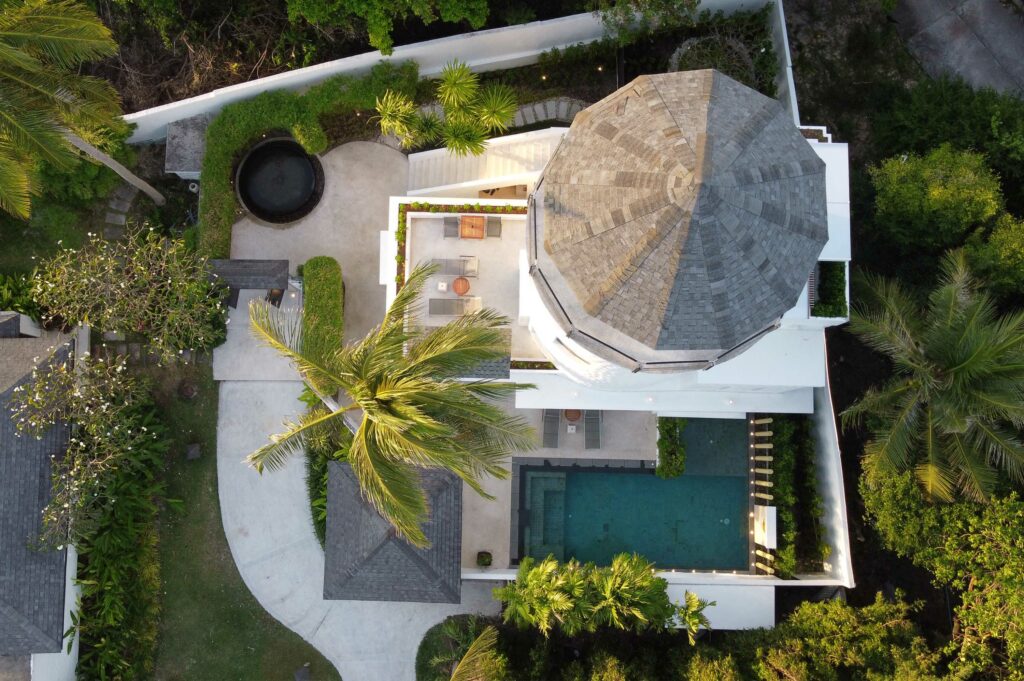
The Racha, Phuket – Thailand
Tucked away on the small tropical island of Racha Yai just south of Phuket, The Racha passionately believes that luxury shouldn’t come at a cost for the environment. The resort sponsors a group of volunteers in collaboration with The Reefball Foundation, a non-profit charity that protects and restores the world’s ocean ecosystems, to revive coral reefs damaged during the Tsunami in 2004. Today, 250 reef balls form five man-made reefs around the island, where juvenile clownfish and many tiny marine creatures nest in coral colonies that have made these pH-neutral concrete Reef Balls their home. Additionally, The Racha uses a floating pontoon which can be moved between Batok Bay and Ter Bay, instead of building a concrete pier which would involve extensive damage to the marine ecology of the island.
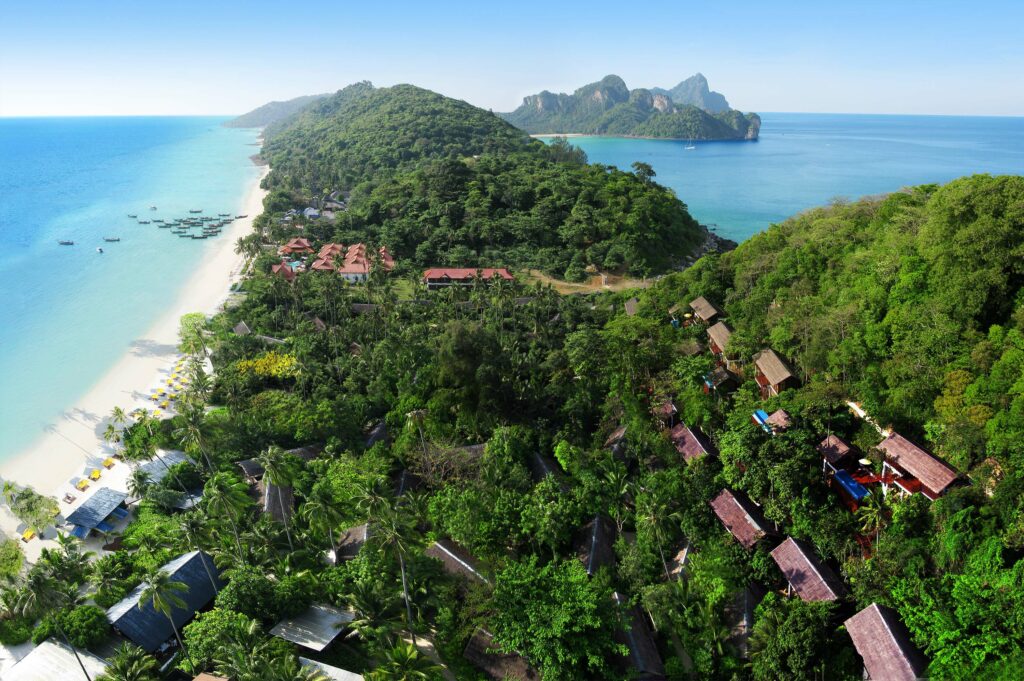
Zeavola Resort, Koh Phi Phi – Thailand
The drinking water bottling plant and #refillmybottle water stations around plastic-free Zeavola Resort reduce single-use plastic bottles by 120,000 per year, while the complex reverse osmosis water system ensures all wastewater is reused in the resort’s jungle gardens – plus each cluster of four villas has its own sealed, closed catch-tank where water and solid waste is separated, earning recognition from Thailand’s Government Health Department as one of the country’s most impressive wastewater systems. You can swim chemical-free lengths in the fresh water pools thanks to the Enviroswim ES3 water purification system (the same system used by NASA space shuttles for on-board drinking water), which reduces a pool’s carbon footprint by lowering pump run-times by up to 50%, saving over 250,000 litres each year.
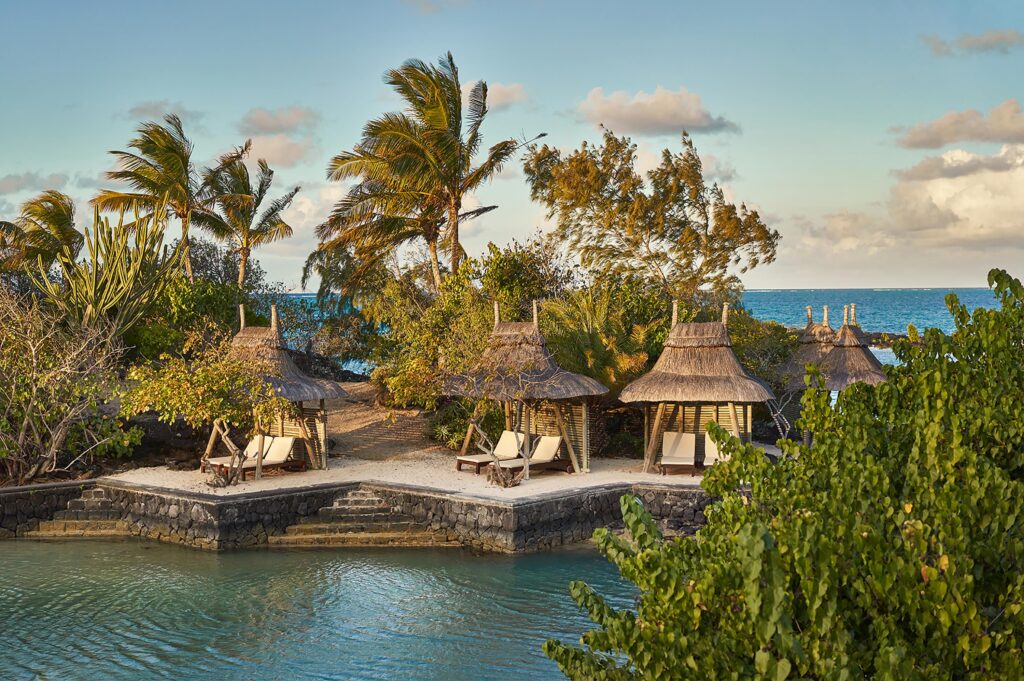
Paradise Cove Boutique Hotel, Anse La Raie – Mauritius
A tropical hideaway overlooking a natural lagoon on the northern coast of Mauritius, Paradise Cove Boutique Hotel is a tranquil as its name suggests. As an active contributor towards the Marine Discovery Centre in Anse-la-Raie, Paradise Cove is dedicated to the protection of the surrounding waters and sharing marine best practices for visitors through educational activities, including regular beach clean-ups and glass-bottom boat tours at the local Voluntary Marine Conservation Area. There is also a dedicated space within the hotel where guests can purchase locally and sustainably made products, including swimwear made using recycled boat sails.